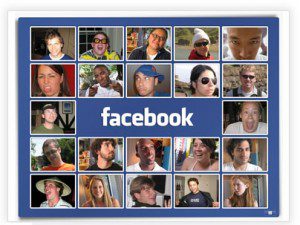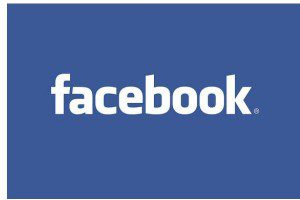 I love Facebook, as and I’ve explained before, I think the idea of social media has strong theological import as well as pure entertainment value. (I admit there’s not much theological insight to be gained from looking up ex-boyfriends, but…there it is.)
I love Facebook, as and I’ve explained before, I think the idea of social media has strong theological import as well as pure entertainment value. (I admit there’s not much theological insight to be gained from looking up ex-boyfriends, but…there it is.)
I’ve been on board with Facebook for almost three years now, and I’ve seen it grow and change and develop. I’ve been patient, very patient, as I’ve adapted to these transformations.
And I’ve held my tongue until today about Facebook’s extreme makeover over these last couple weeks because I wanted to make sure I understood it before holding it up for praise or censure.
Commence with the censure: I loathe several aspects of the new Facebook. So here goes.
1. Invisible blog posts. The new design seems to be giving news feed priority to anything that comes through as an on-the-ground status update rather than what comes in via Twitter, NetworkedBlogs, etc. For blog posts, this means that it’s better for me to go to Facebook directly to pull my blogpost in, rather than hitting “share” on the post itself to push content to Facebook automatically. Not surprisingly, the net effect of this change is to drive my traffic to Facebook.
2. Vanishing tweets. One of the great things about the Twible project over the last two years has been using Sendible to preload a month’s worth of tweets at a time and set them to distribute on certain days to Twitter and Facebook. However, in the last week I’ve noticed that my Twible comments and likes on Facebook dropped from 10-15 on average per post to zero. Nothing. So either:
a) Twible fans quite suddenly and communally lost interest (admittedly, the Book of Isaiah is not nearly so sexy as the Song of Solomon that preceded it) or,
b) Facebook’s new design is hiding my Twibles when they come in through Sendible.
So yesterday, I tried an experiment where I deleted the Sendible version and re-posted the same content as my status update. Suddenly the fans were back and enjoying the Twible. And guess what? The solution to the problem, once again, requires me to go into Facebook one more time a day than I normally would to create content internally rather than import it from an external source–and which (what a shocker) thereby raises Facebook’s stats for users’ minutes spent on the site and, in turn, what it can charge advertisers.
 3. Privacy issues. Many other people have written about this problem, offering hints about how to protect ourselves from Facebook’s default assumption that every single person in the world would enjoy living in that nightmare I sometimes have where I’m in a public place with no clothes on. Yesterday I learned that in my new Timeline, all of my past status updates would be available unless I go through every one of them from the last three years and hide the ones that are too personal.
3. Privacy issues. Many other people have written about this problem, offering hints about how to protect ourselves from Facebook’s default assumption that every single person in the world would enjoy living in that nightmare I sometimes have where I’m in a public place with no clothes on. Yesterday I learned that in my new Timeline, all of my past status updates would be available unless I go through every one of them from the last three years and hide the ones that are too personal.
WTF?! When I first joined Facebook in 2008, my initial group of Facebook friends were people I knew personally and with whom I felt comfortable discussing issues like parenting problems–issues I make it a point never to write about professionally. I was naive to assume that those were private conversations among friends. A year after joining Facebook, as part of my month of practicing Benedictine hospitality for my book Flunking Sainthood, I built a bridge over to my Facebook wall and made it a policy to “friend” anyone who asked–usually readers who like my work. That open policy has been a blessing to me, as it turns out I have the coolest readers ever, but for two years now I’ve been very careful not to post things that are overly personal. I don’t announce on Facebook when our family is going out of town (hey, the keys to our totally empty house are under the faux turtle!) or vent about troublesome authors (actually, I only have one who is a pain) or get overly political (okay, sometimes I still do). And I don’t want to connect Facebook to my Netflix account, so that the world can know what I’m watching and when, or to my Pandora feed, so the world can deride my penchant for bad music. Enough already.
I don’t want to get rid of Facebook, but the greater control offered by Google Plus is looking more and more attractive. Are you listening, Mr. Zuckerberg?

